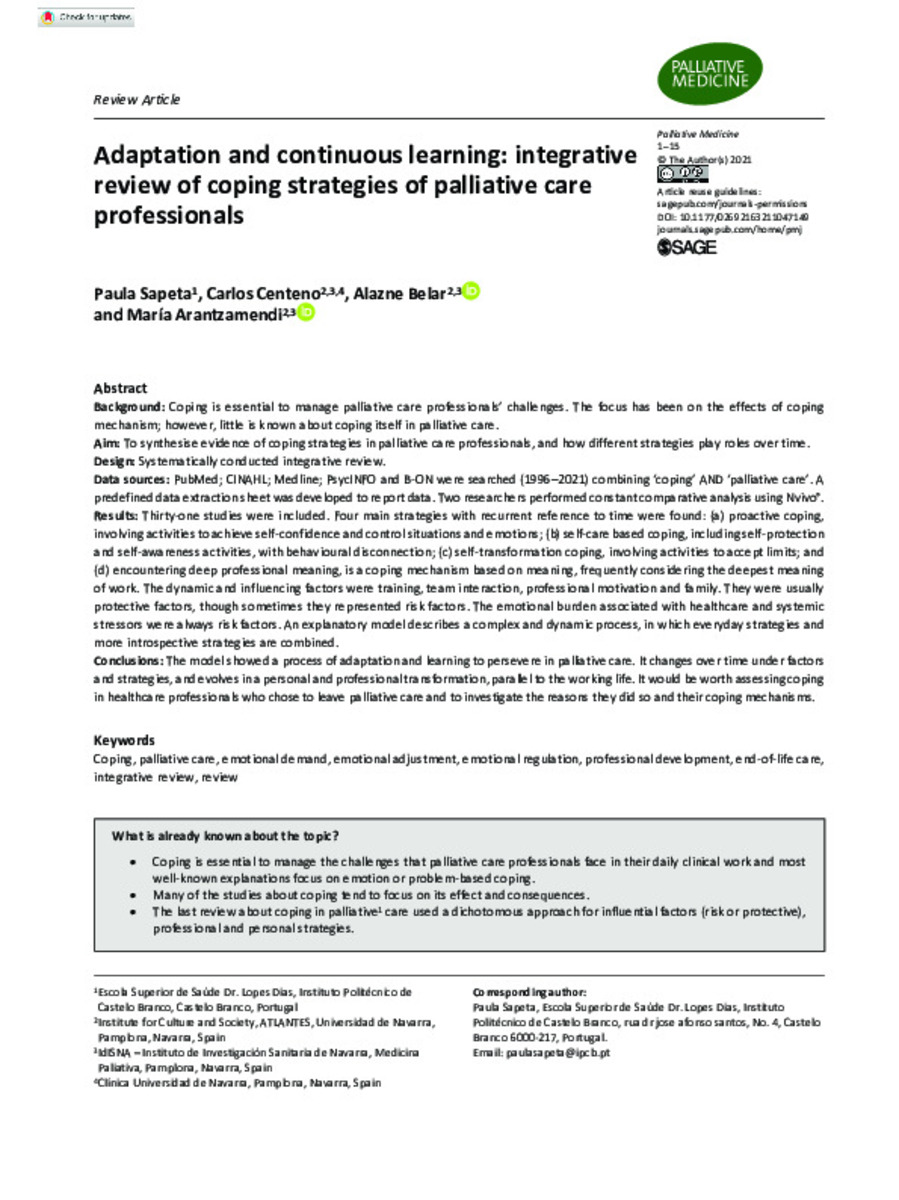Adaptation and continuous learning: integrative review of coping strategies of palliative care professionals
Palabras clave :
Coping
Palliative care
Emotional demand
Emotional adjustment
Emotional regulation
Professional development
End-of-life care
Integrative review
Fecha de publicación :
2021
Editorial :
SAGE Publications
Nota:
Attribution-NonCommercial 4.0 International (CC BY-NC 4.0)
Cita:
Sapeta, P., Centeno, C., Belar, A., & Arantzamendi, M. (2021). Adaptation and continuous learning: integrative review of coping strategies of palliative care professionals. Palliative Medicine, 2692163211047149.
Aparece en las colecciones:
Estadísticas e impacto
0 citas en

0 citas en

Los ítems de Dadun están protegidos por copyright, con todos los derechos reservados, a menos que se indique lo contrario.











